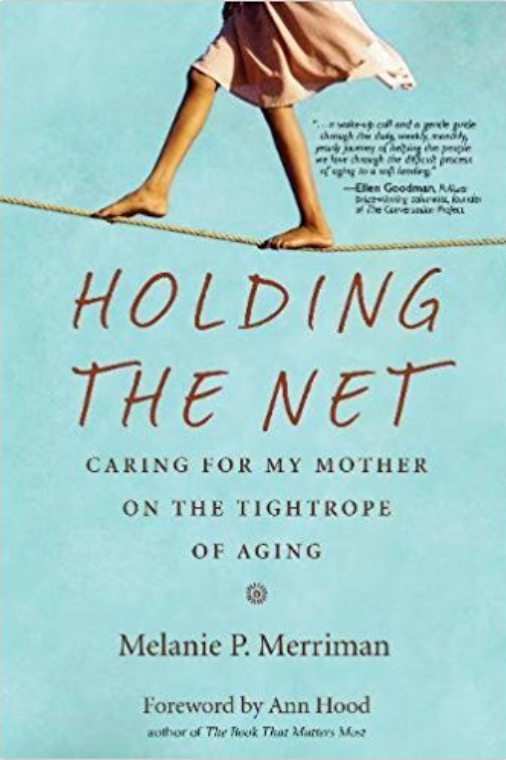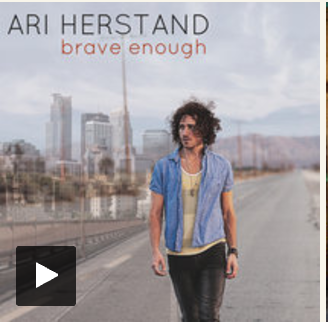EPISODE 18: WHO IS JAHN DOPE?
ALLISON: Hey you’re listening to writing class radio, a podcast where we share stories with you from our writing class. I’m Allison Langer your host and a student in the class.
Today you’ll hear a story from one of my fellow students, Jahn Dope. His story is called dark matter. The story begins after Jahn overdoses on LSD then backtracks to childhood.
Dark Matter
I remember my sister Dominique asking me, what happened to you? Why are you always caught up in some drama? You need to protect yourself from these dangerous situations.
I didn't have a good answer then. I just kept quiet and let her put vitamin E on the scar on my forehead I got from smashing my head through a window. I overdosed on L.S.D. I had bad trip on 15 hits of acid.
I was born in Long Island, New York in a Haitian American family of five. I was the only boy and the fourth child. My family was the only Haitian family on Ridgewood Avenue. Both of my parents had more than one job.
My mom Nadja worked in a Hospital, she also worked at Eaton Corporation assembling parts on a conveyer belt, and as a caterer for special events. I never met a person that did not like her cooking. Nadja was also born in Haiti and did not get far in school either. Her mother died of pneumonia when she was an infant. Her father traveled and dealt in the black market. The only pictures I ever saw of my grandfather were in a hat and overcoat pointing a revolver. The other was in a coffin.
My dad Leon was born in Haiti. He didn't get passed the fourth grade because his Dad made him work instead. He was an electrician supervisor for a company, a cab driver, and a mechanic.
I know basically nothing about my father's side of the family. I only saw one picture of his mother that he kept on his nightstand. The picture was in black and white and her complexion was very fair. My father didn't like that I had a dark complexion. He would ask me when I was a toddler… Why are you so Black?
Nobody helped me with my studies. I remember going around the house looking for help. I would start at oldest or the one in charge. “Wewe.” Which stood for Wilamina, “Can you help me?” She was always on her way out to be with her boyfriend. Next was Doe which stood for Dominique, She stayed away from everyone locked in her room by herself or with her best friend. She burned a lot of incense and when she came out would send me to the store to buy Entenmann’s chocolate chip cookies. Doe said my ears remind her of them. Next was Mymy, which stood for Mayaliane. “Mymy… I need help.”
“Not right now I'm on the phone.” She then started talking in Pig Latin. One day I found out how to decipher it on the back of the school bus. I snuck through the kitchen to the living room and under the table. I had my pencil and black and white composition book. I spied on her as I looked through the embroidered tablecloth. She was on the couch with her back to me chatting away. I found out she kissed a boy. I sprung out startling her. I said, “Ewwww I'm going to tell.” But I was just joking. She rumbled and pounced on top of me. She was five years older and stronger than I was at age 11. She pinned me down on my back and grabbed my arms. “You're going to tell what?” I laughed and said, “That you're kissing boys.”
“You're not going to say nothing or I'm going to tell poppy you’re the one who broke the VCR.” I got mad because we already agreed that was going to be a secret. I crossed my heart and hoped to die. I caught her smoking a cigarette and kept quiet when my dad found one of them that she left out in the room we shared. I cried out! “Oooohhhhh you're not fair!” And she said, “Life is not fair.” Then she grabbed my arm and made me hit myself in my face. While she did that she said… “Why are you hitting yourself?” I started to cry because I was scared. She let me go, and I asked, “Are you going to tell poppy? Please don't I was just joking with you. I'll do anything! Pretty please. Mymy I'll do all your chores.” I was petrified of Leon and another whooping. He was so violent with his belt, and the most violent with me since I was the only boy.
There were three kinds of whoopings… one you hold out your hands palms up and he would spank them. Mostly during some kind of interrogation of an incident. I also learned my multiplication that way. My arch nemesis was 7 times 6 or 6 times 7: 42. He'd get me every time with that one. He would start low and I would count in my head. If I was worried I’d get one wrong, I would lie and ask to go to the bathroom and count on my fingers.
The second and the ultimate mind fuck, was the metal olive green folding chair that was placed out in the middle of the kitchen. That meant someone was going to get it when he came home. You would have to take down your pants and underwear, bend over the chair and feel his wrath. “Poppy… what did I do?” I’d say as I undid my pants. He'd say, “The longer you take, the longer I take.”
The third was the scariest, the creep up on. The whooping that was made especially for me, because I ran one day. I was four or five and after stripping off my clothes I ran butt booty naked out the room, down the stairs and out the door I went. He was on my tail as I ran out the door, but we had a big yard and he could not catch me.
I ended up in my mother's arms and she pleaded with him to leave me alone and he did. That night he came into my room turned on the light and shut the door. He was calm but his eyes said I was in big trouble. I was trapped. Quickly, I hid under the bed. He snatched me out from under the bed and grabbed my arms tight so I couldn’t get away. He hit me repeatedly and I cried and screamed. I was frightened and in pain. I heard my sister yelling through the wall to leave me alone. I don't think he heard her. He was deaf with rage. I embarrassed him and I had to pay. I ended up passing out.
Leon left when I was seven. You’d think life would get calmer, but it didn’t. He would come back to reprimand me. Like when my mom told him I got bad math grades. And no one was there to watch me. Wewe and Doe had left the house. By the time I was 9 years old Mymy was into boys and mom was working. My mom moved our family to Florida when I turned 12. She could not keep up with the bills and sold our house for a smaller one: a house in Miramar with a smaller backyard. Middle school was rough. I was picked on because I spoke too proper for the local kids. You talk like a cracka. I didn’t even have the clothes that were in style. My clothes came from flea market, Wal-Mart, and my sister’s hand me downs. I would bleach the clothes if they were pink or any other girlish color. I ended up getting into fights and I won every single one! I eventually earned the other kids respect for that and my athletic abilities. When I was 14, I smoked my first joint. I stole it out of Mymy’s purse while I was looking for candy. It felt great, I forgot about all my troubles and worries. Laughing never felt so good and food never tasted better. From that point on, I was not afraid of taking drugs. When I was a freshman in high school, Wewe withdrew me from Miramar High and moved me to Naples, Florida. I ended up around rich kids and harder drugs like cocaine. When I first tried cocaine it was by accident I thought it was a crushed Percocet. Wewe had told me that if I ever did coke I would have a heart attack. That wasn’t true. So I did it all: weed, pills, coke, and my favorite, acid. Most of the time, I did all of them at the same time. It only got darker from there. Because of drugs, I lost my home, a chance to host a radio show, the woman I love.
I’ve been clean for 5 years, but I still have regrets and the scar on my forehead is a reminder of everything I lost. When I look in the mirror, I can still see it. There isn’t enough vitamin E to clear it up completely.
The scar inside bothers me, the most.
Allison: After hearing his story in class, I was curious to know how Jahn’s life got darker. What did he mean he lost his home? What regrets? So we sent our audio producers, Diego and Misha to get the scoop. But, before we get to that, here’s a word from our sponsors.
Allison: For all you west coasters, I am going to be teaching a writing class at the explorists retreat in napa valley nov 3-6th 2016. I will be sharing my story of going from the impossible to the possible and there will be yoga and meditation, other dynamic speakers and workshop leaders, delicious organic meals, and other healing and motivational wisdom to inspire change in your life.
You can find more info at the bottom of our website or at theexplorists.com
And for all you east coasters, Andrea is teaching a writing workshop at the Sanibel Island Writers Conference. Andrea taught at this conference last year and won’t shut up about it.
Sanibel Island Writers Conference, A POWERHOUSE LINE UP INCLUDING: Richard Blanco, Joyce Maynard, Steve Almond, Darin Strauss, Karen Tolchin, Steven Elliot, and Sue Monk Kidd. They are awesome, awesome storytellers and authors. And you can take classes with all of them, including our very own Andrea Askowitz.
That conference also runs November 3-6, 2016. A conference for writers of all levels. To register, click on the link at the bottom of our website.
ALLISON: Welcome back. You’re listening to writing class radio. At the beginning of this episode, Jahn Dope read his story, dark matter, which gave us a little background into his life growing up. In class, when Jahn ended this story, I was like, whaaaat? What happened? I wanted so more.
But in class we don’t get to hear the answers to those questions, because the narrator is not allowed to speak after the story’s read. He’s not aloud to explain what he meant. The story has to speak for itself.
Jahn’s story had holes, and I wasn’t sure if he was afraid to share his whole story or if he just didn’t get there in 1200 words. I wanted to know everything. Jahn agreed to meet up with Misha and Diego and share his whole story with us.
DIEGO: Hey guys, this is Diego. I’m one of the audio producers. You may remember Jahn from a previous episode.
Hear clip about Jahn's relationship with his mother and some background into childhood. (mother ep) I’m really mad at my mother….came from a family of 5 and she taught us a lot of traits……but she has these relationships with these random men that have torn apart our family and has thought nothing of it.
DIEGO: In that episode, Jahn told a story about his mom. In the story Jahn read at the beginning of this episode, we hear a little about his sisters and their role in his childhood. We were curious to find out what happened in Jahn’s life during and after high school, so Misha and I decided to meet him outside of the event space he now works at.
Jahn: heyyyy…..I gotta tell these guys. Hey guys, it’s closed.
Jahn: About 95, I end up moving to Naples, Florida. You know, out of nowhere. I just go to school one day and they’re like you’ve been signed out.
DIEGO: Jahn was 14 yrs old when he transferred to a new high school in freshman year. The change was hard for him, but because he was a good athlete, he was asked to join the football team. By senior year, he was one of the best on the team and a prospect to play college ball.
One day in his senior year, he was invited to wrestling practice…
JAHN: I was wrestling with him and he just fell on my knee. I didn’t feel too good. There was no urgent care for me. The wrestling coach was like, if anybody asks, you just fell and tripped in the parking lot.
DIEGO: not long after, college football recruiters from ball state, a division 1 school, came out to see him.
Jahn: like imagine like 2 or 3 period of class. Full hallway. I’m walking on my crutches….. hear his voice….He sees I’m on a stabilizer. I saw my coach with these two guys…you’re one chance. I ended up getting hurt. One of the rare opportunities to better my life and better my schooling was taken away.
DIEGO: After losing his opportunity to play college football, Jahn gave up on himself.
Jahn: After that, I started to experiment more with drugs to cover up the pain and hurt to not be able to fulfill the dream I had. It was the emotional pain. I was trying to get out. When drugs came into my life, it made me feel good. And I did it to the best of my knowledge. I wanted new experiences. I wanted to escape from the mental trauma.
DIEGO: Jahn was given a spot on the football team at Methodist College, a d3 school in North Carolina, and his dad, having a desire to get back into his life, offered to pay. But toward the middle of his second semester he takes the train home for spring break.
Jahn: I ended up missing the train and I couldn’t get back to the school in time. I missed my midterms and got put on probation. My dad doesn’t understand that and after that, he cut me off completely.
DIEGO: After Jahn’s dad cut him off, he dropped out of school.
JAHN: well, I’ve gotta live life on life’s terms...you ain’t got a college education...I did that for a little minute. And, I worked odd jobs here and there, quit some, got fired from others for being a weekend worrier.
Jahn: I partied on the weekend and worked during the week. This went all the way to 25. I started bouncing from couches to my sisters house and eventually I became homeless”
DIEGO: WHEN AND WHERE WAS THAT TIPPING POINT? When was it that you couldn’t balance doing all these drugs on the weekend?
JAHN: I would say the tipping point was when my sister contracted HIV from her husband. Her death and the death of my father was when I got to be a real emotional wreck. I took more chances. Things I thought I would never do, I started trying. You know. I wanted to numb myself of the whole picture. I am sorry I can’t give a clear picture of everything that happened.
JAHN: I tried stronger drugs. A lot of stuff I block out..It’s too much to deal with...in Miami…started doing crack cocaine. I started trying to sell drugs to make a living and to self medicate…to being homeless. I was never comfortable sleeping right there on the sidewalk. Being the kind of lifestyle I grew up in. it was too shameful for me to look up from a piece of cardboard ….like hey, remember me?
JAHN: I remember trying to find a nice, safe spot to sleep where nobody’s going to mess with you. Waking up to sirens. The cops saying, you’re not supposed to be here. People on the streets have mental issues. They’re not right. Everyone doing all these drugs, you can’t expect people to be right…..they are not.
DIEGO: When Jahn first started using drugs to get away from his day to day, he didn’t imagine himself becoming addicted and homeless in Miami. What was he thinking, what was he feeling going from promising athlete to weekend raver to surviving on the streets.
JAHN: I just didn’t care anymore at that point. Everything has gone wrong in my life. This is what I might as well do. Rug gets pulled out from under me. I’ve made some regretful mistakes. I couldn’t do it anymore. I felt like I must belong here, because of where I’m at….nothing happens to you without a reason. I tried to live like a real homeless person. I learned spots to eat. Put me under their wing. This where you can eat, shower and stuff like that.”
JAHN: You know, when I tried to sell drugs. I got caught a couple of times. If you’re good, you’re going to have customers come up to you. They know this area is high drug activity and they keep seeing you. So of course, you’re going to get busted….they just come up on you.
Diego: I asked if selling was the only thing he got locked up for.
JAHN: possession, trespassing, criminal mischief, grand theft.
Diego: And it was that last one, grand theft, that landed him in jail for 180 days. Jahn would also make money by selling scrap metals, sometimes by ‘finding’ them on construction sites he’d sneak into. One day someone came asking for a favor
JAHN: some guy comes up to me a couple of days bef my bday and he’s like, hey man, I need this dolly to move some stuff. I’ll rent you a dolly, bc it was a way to make some money. He was doing it wrong, and I started showing him how to do it correctly, and the cops came. We were breaking apart this old dilapidated aluminum fence that was already missing pieces, but it wasn’t ours. I got out and was back out on the streets and I’m like, I’m here again. I started looking for a way to make some money…all the way to “There’s a way it can be done.”
Diego: After getting out of JAIL, Jahn made a choice to change his life. He left the spot he was getting high at and walked 25 blocks to the Miami Rescue Mission.
JAHN: “I came from that street right there. 14 down. I was deep down town and took the walk way over here. Somebody offered me a tent, a job, to get high…where was all this stuff when I needed it? It was clear I was doing the right thing. I was sick and tired of being out there...and I felt good!
Diego: Misha and I went to the rescue mission so Jahn could show us around and he immediately ran into one of his old buddies.
JAHN: “This is my friend Sam, Sam Chiver.”
Diego: Sam and Jahn talked about their shared experience at the mission. Having to sleep on the chapel floor for the first few days and taking communal showers with people who hadn’t bathed in days and being woken up by a PA system.
Jahn stayed at the mission for three years. He became the leader of the rehab group he got placed in and completed the program in an under a year.
After finishing the program, he worked for the mission; placing calls asking for donations.
In a less than a third of the time he spent homeless, Jahn sobered up and was earning an honest living.
And if you ask him what was it that lifted him and sustained him through that transitional period at the mission?
Jahn: the mission, god, the writing class and a book by Louise L. Hay called You Can Heal Your Life that my sister Dominique gave me. Life experiences and that book helped me get where I am today.
Allison: Jahn met Andrea when she taught classes at the Miami Rescue Mission. John showed up every week for two years. One day in our class, Jahn wrote this:
Had a chance to dig deep and work on myself. Her class helped in saving my life! Thank you Andrea and I love you for that. You helped me find feelings that I suppressed that give me the inspiration to give a shit. Plus she laughs at my jokes.
ALLISON: Jahn joined Writing Class Radio a year and a half ago. We let him use a pseudonym because of his affiliation with the Rescue Mission but he promised to come clean when he could. A few months ago, Jahn left the mission after living and working there for three years. Now, as promised, he’s proud to use his real name.
Jahn: My name is PHILIP SYLVERIN… I’m Haitian American born in Long Island. I’m a production manager and now I live here in Wynwood. (insert music here)
Ari Herstand new day in album Brave Enough.
Allison: Phil’s life has been hell for a really long time. Life is fucking hard for all of us in one way or another. The trick is coping in a healthy way. Writing my stories has helped me get through a lot of shit.
Jahn told us that writing class was one of the main things that saved his life. I saw it first hand. In class when Jahn wrote about the shitty things he’s had to overcome, it seemed like writing them down and sharing them with the class helped him move past Jahn Dope and on to a thriving, healthy, Phil Sylverin.
Everyone who comes to class is working through something. Are you? Are you working through something in your life? If so, we want you to share your story with us.
That’s the prompt for this episode. Write about what you are struggling with right now. Is it motherhood, addiction, your weight, aging? Write for 10 minutes quickly without too much thought and record what you wrote on the voice memo of your phone. Then email it to us at info@writingclassradio.com.
We’d love to air your response right here on the podcast.
Thank you for listening to Writing Class Radio.
This episode is produced by Diego Saldana Rojas, Misha Mehrel, Andrea Askowitz, and me, Allison Langer with editorial help from Sonesh Chainani and Wendi Adelson.
Writing Class Radio is sponsored and recorded at the University of Miami School of Communication.
Theme music by Adriel Borshansky. Additional music by Ari Herstand and Monplaisir. Check out all our musicians on our website. Study the stories we study and listen to our craft-talks.
There’s no better way to understand ourselves and each other, than by writing and sharing our stories. Everyone has a story. What’s yours?

















